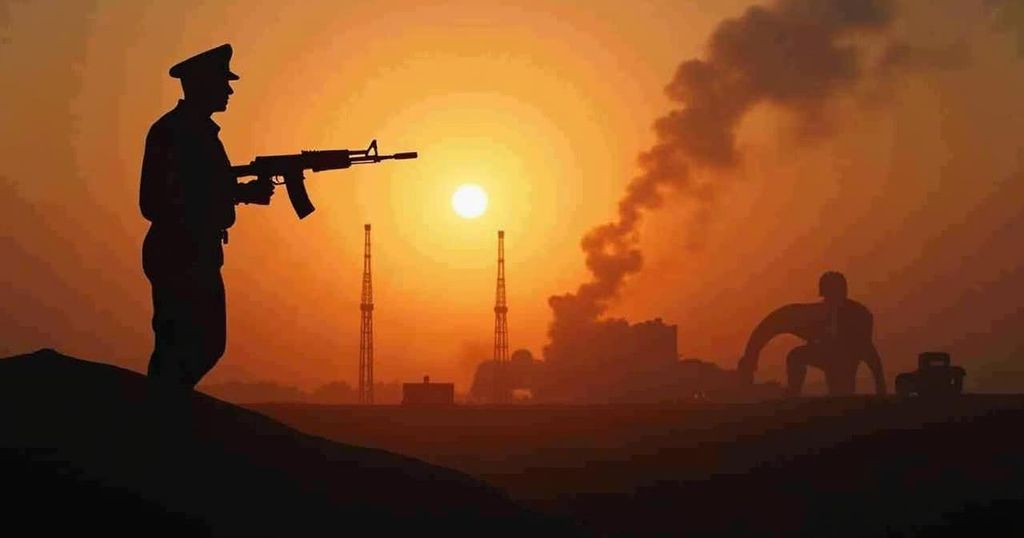Iranian Leadership Issues Warnings Following Missile Exchange with Israel
Iranian President Masoud Pezeshkian issued a stern warning to Israel following a missile attack deemed a necessary retaliatory measure against Israeli hostilities. Pezeshkian emphasized Iran’s legitimate rights to defend itself and cautioned against underestimating Iranian might. Supreme Leader Ali Khamenei proclaimed that attacks would intensify, while the ongoing military tensions suggest a volatile future.
In the wake of a substantial missile strike on Israel attributed to Iran, President Masoud Pezeshkian issued a pointed message via his official X account. He characterized the assault as a necessary retaliatory action in response to what he deemed the “aggression of the Zionist regime.” President Pezeshkian reaffirmed that Iran’s operations were grounded in its “legitimate rights” and aimed at fostering peace and security for both the nation of Iran and its regional counterparts. He stated, “A decisive response was given,” and cautioned Israeli Prime Minister Benjamin Netanyahu to acknowledge Iran’s position, asserting, “Let Netanyahu know that Iran is not a belligerent, but it stands firmly against any threat. This is only a corner of our power. Do not enter into a conflict with Iran.” The missile attack, reported to have been initiated as a response to Israel’s persistent military activities against Hezbollah in Lebanon, has served to exacerbate the already volatile relationship between the two nations. In a related commentary, Supreme Leader Ali Khamenei expressed a combative stance, positing that the attacks would escalate, proclaiming, “With God’s help, the blows of the uprising front will become stronger and more painful on the worn and rotting body of the Zionist regime.” The Israeli Defense Forces (IDF) confirmed the launch of over 150 missiles by Iran, triggering nationwide Red Alerts and leading millions of citizens to seek shelter in bomb-resistant locales. Reports indicate that explosions resounded through key urban areas, including Jerusalem and Tel Aviv, as residents heeded the warning from air raid sirens. As both countries appear poised for further military action, the atmosphere in the region hangs heavy with the potential for escalation, with Israel’s retaliatory measures yet to unfold.
The ongoing strife between Iran and Israel has deep historical roots, marked by ideological, political, and military confrontations. Recent events have heightened tensions, particularly Israel’s military operations against Hezbollah, which Iran supports. In this context, Iran’s missile attack on Israel is viewed as an act of reprisal, intensifying the conflict. Leaders from both sides have engaged in rhetoric that suggests a hardening of positions, underscoring the fragile peace in the region and the risks of further military engagements.
The declarations made by Iranian officials following the recent missile attack on Israel signify a critical escalation in hostilities between the two nations. President Pezeshkian’s warning to Prime Minister Netanyahu highlights Iran’s intent to display its military capabilities while framing its actions as defensive. Supreme Leader Khamenei’s remarks further underscore the potential for intensified confrontations in the future. As both countries prepare for possible retaliations, the geopolitical landscape in the region remains precarious, with the risk of significant conflict looming.
Original Source: indianexpress.com




Post Comment